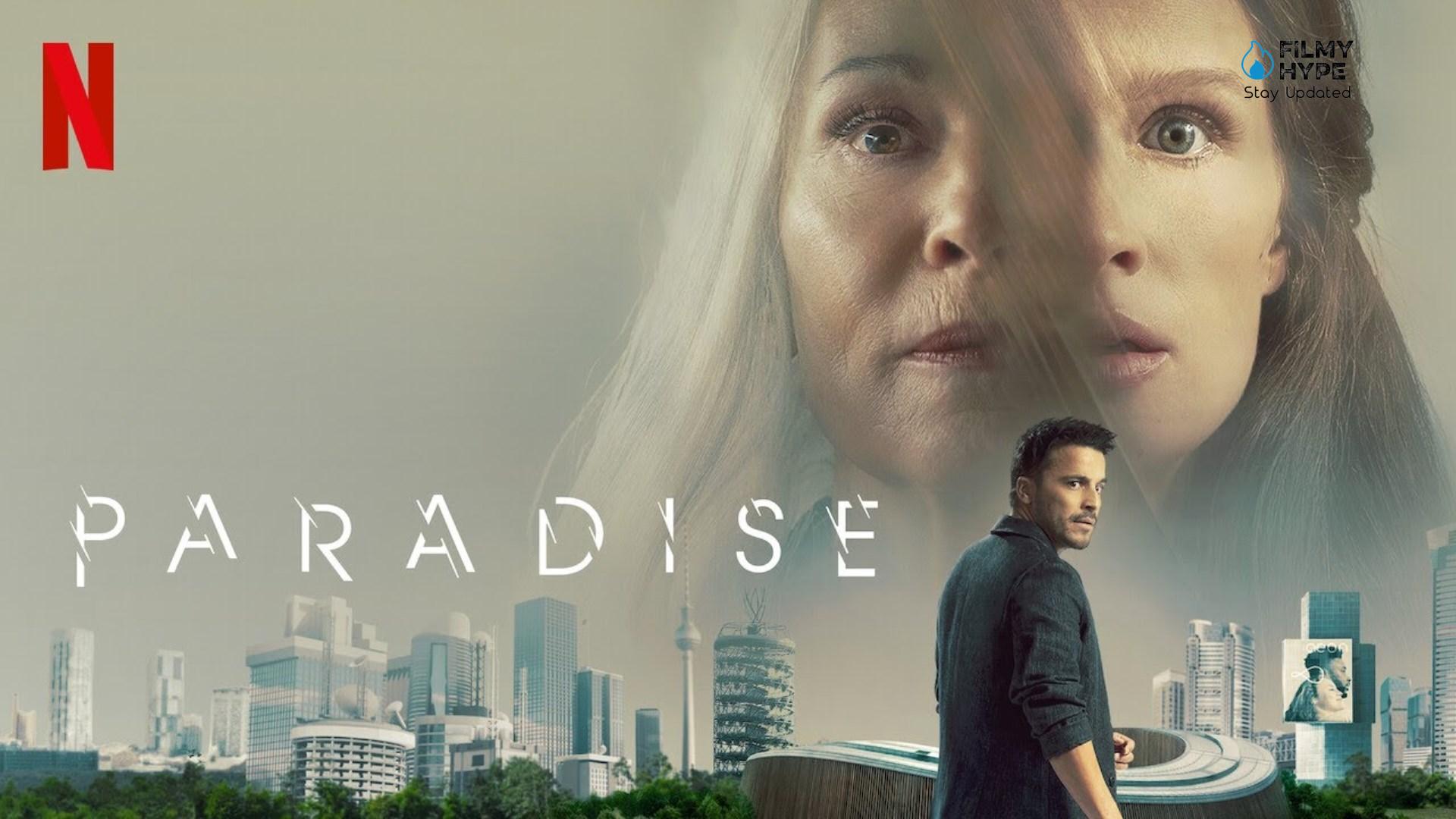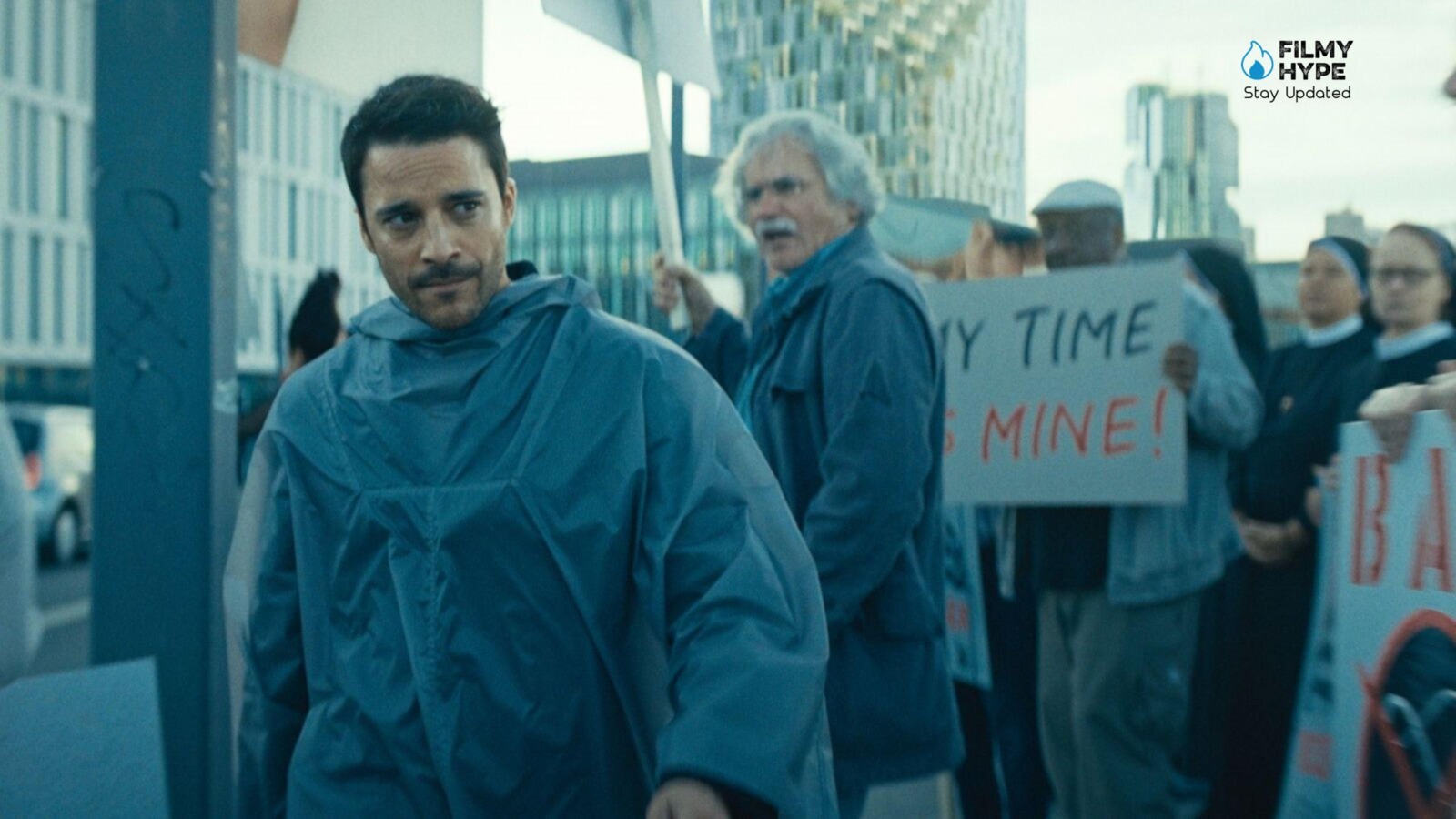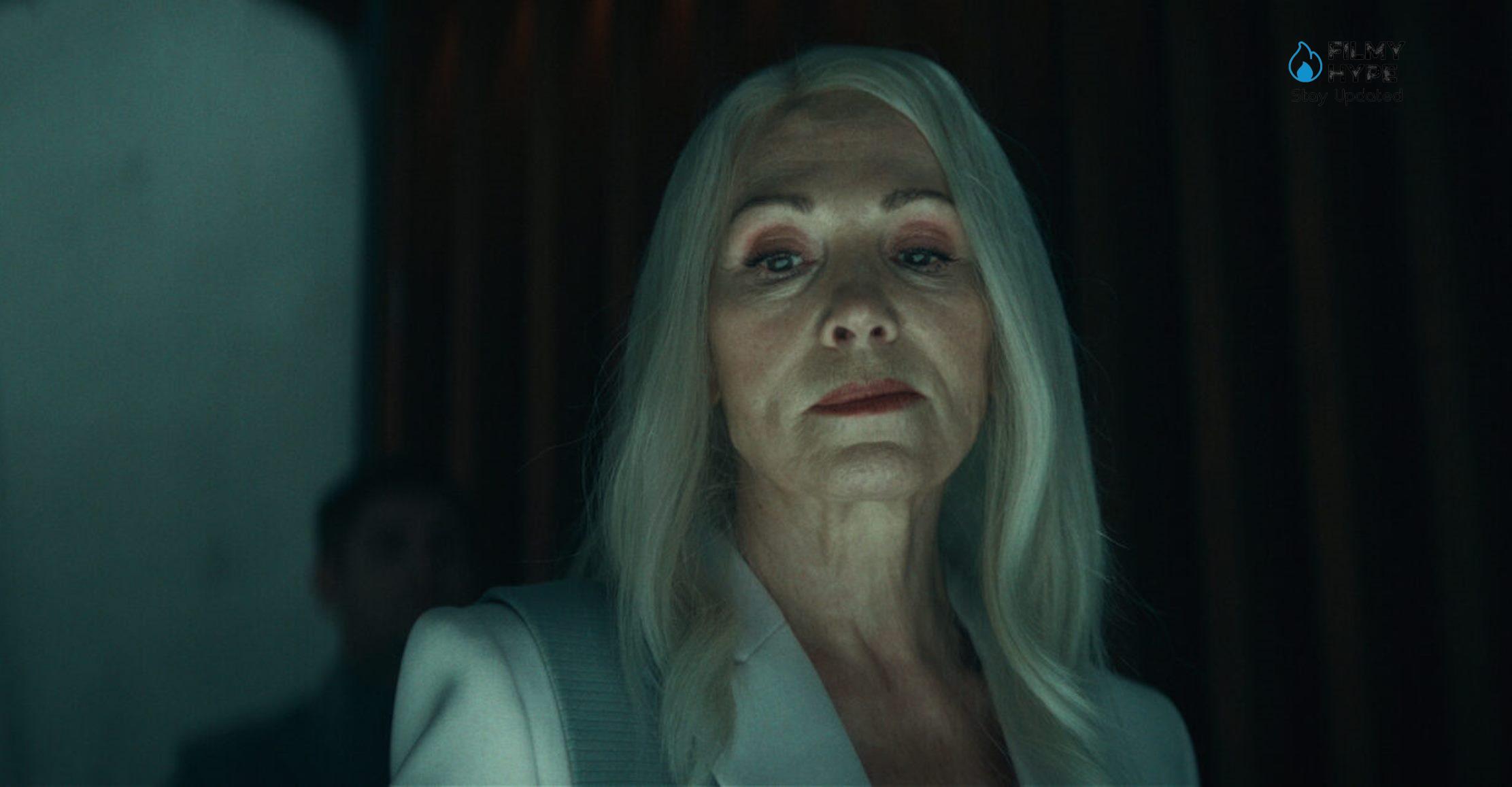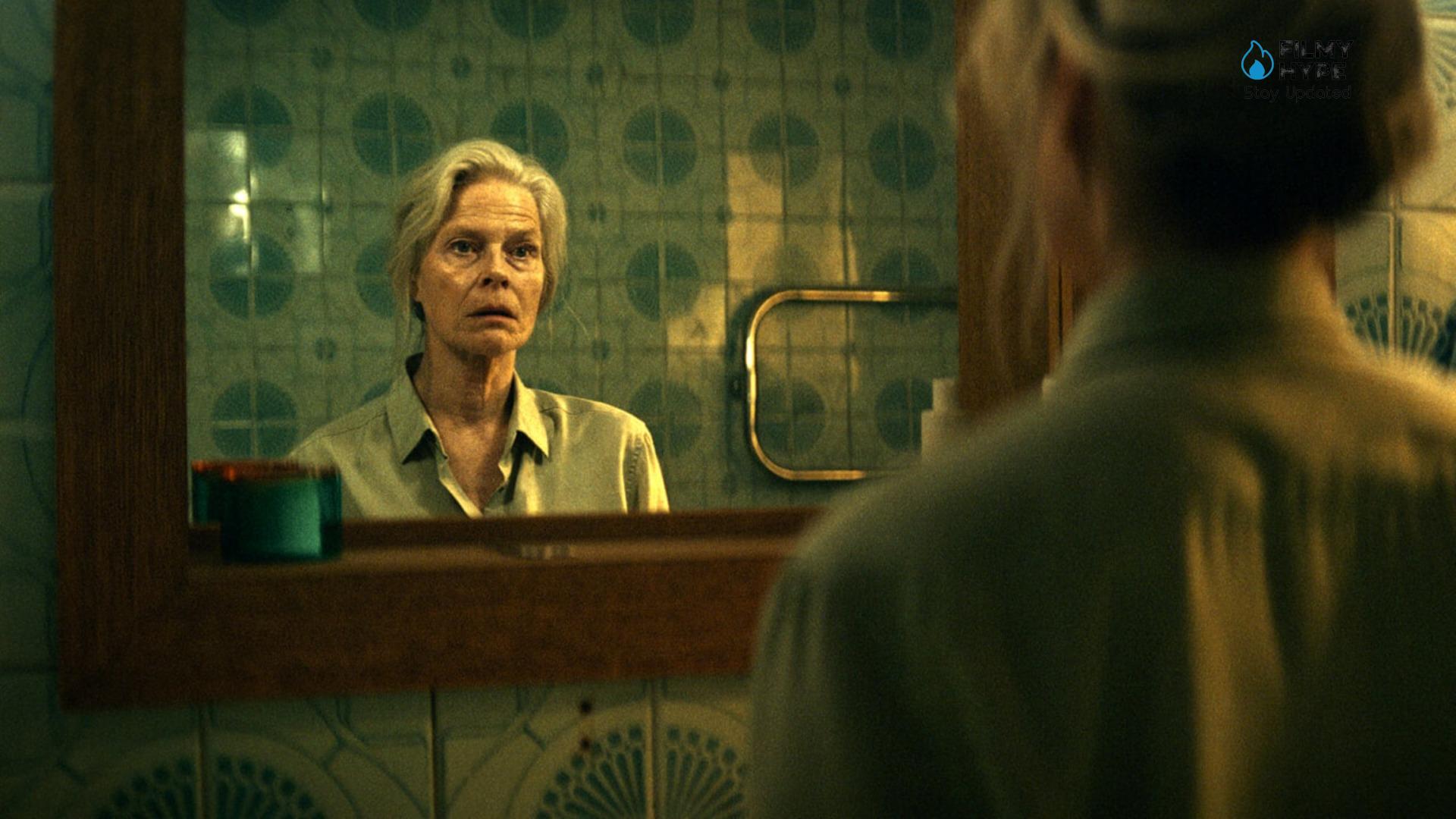Paradise Review (2023): A World Where Time Can Be Sold an Extremely Interesting Premise
Cast: Kostja Ullman, Marlene Tanczik, Iris Berben and Corinna Kirchhoff
Director: Boris Kunz
Streaming Platform: Netflix
Filmyhype.com Ratings: 4/5 (four stars)
From July 27 Paradise is available on Netflix, the new sci-fi thriller film that explores the possibility of selling years of one’s life in exchange for financial serenity. The film is a completely German production by the production house NEUESUPER GmBH to director and screenwriter Boris Kunz (Breaking Even, 2020). “What would happen to the world in the future if…?” All dystopias start from this question: whether it’s a world war that destroys the planet, yet another devastating natural disaster, an alien invasion, or the invention of a new technology, which however more than helping humanity enslave it. It is precisely from this last premise that the new German film available on Netflix, Paradise, finds its starting point, which tells us about a very particular and disturbing near future. A scientist has invented a frightening technology: with a simple surgical operation it is now possible to transfer the years of a person’s life to another, who from being old will become young again thanks to the “donation”. However, the donor will suddenly age, losing all the years she has transferred.

In a world where the differences between rich and poor and social inequality have become increasingly radical, what can be the only, inevitable, consequence of this scientific discovery: time acquires an exchange value, and the poorest – who have nothing but their own lives – begin to sell their own to the richest. And this is how those who can afford it always remain young, and the millions and millions of poor people who crowd the world end up being considered almost as cannon fodder, useful only to “give away” some extra time. As we shall see in this Paradise review, Boris Kunz’s film starts from an extremely interesting premise, which develops very well and immediately captures the viewer’s attention. Too bad, however, for a more action/thriller second part with a swinging rhythm and which does not involve as much as the first.
Paradise Review (2023): The Story Plot
Max (Kostja Ullman) is a skilled salesman of AEON, the pharmaceutical company that has patented the technology of “transferring” time from one person to another. The man specializes in convincing the humblest people, immigrants and refugees living in endless slums, to sell their time, and he’s so good at his job that he’s even named employee of the year. His life seems to be booming on all fronts, he’s married to the gorgeous Elena (Marlene Tanczik and Corinna Kirchhoff) and the two plan to have their first child. All this until a mysterious fire destroys their expensive apartment (which the two haven’t finished paying for yet): the insurance company doesn’t want to help them, and Elena is forced to commit her time to repay the debt.

Time swapping is not a simple technology, a thorough study of the donor’s DNA is required, which will determine if there is an affinity with a specific recipient. Max can’t give her hers (her recipient died in a sudden accident) and so Elena is forced to give away most of her life to someone. Not even appeals to Sophie Theissen (Iris Berben), the inventor of the exchange technology and Max’s boss, will help, and Elena as a young and beautiful woman finds herself old and debilitated. But when Max realizes that Sophie has suddenly rejuvenated and that it is she to whom his wife has donated her time, he concocts a desperate plan to reclaim the future that he and Elena have been denied.
Paradise Review (2023) and Analysis
The beauty of Paradise is that it offers the public one of the most original plots seen this year on the streaming platform, it tells a story that could have been an episode of Black Mirror and that if it had been included in the last season of Charlie’s dystopian series Brooker, would have even surpassed his episodes in quality and originality. Paradise is an existential journey, a bitter metaphor of humanity blinded by eternal youth that loses every shred of conscience, morals, and sense of altruism leading men to become murderers just to save themselves. The one described by Paradise and its protagonists who perfectly dress the decadent values of the contemporary world, is a humanity that is no longer willing to help others, to accept the passage of time and all this does not seem so far from our society where appearance is one of the essential values of a happy life and aging is the greatest fear of men. But happiness doesn’t lie in appearances, in a face without wrinkles, or an aesthetically perfect life, happiness lies in the cracks, in the marks that time leaves on the skin of people who have lived a life without sparing themselves, it lies in the brevity, in the flow, in daily life also made up of ugliness and this Netflix film, in its 117 minutes, does nothing but remind us of it, making us want to live this life to the fullest.
In Paradise, the most important currency is time, which is taken away from the poor to “give it” to the rich who are increasingly eager for a better life, thirsty for a technology similar to an elixir of youth and immortality. In this Sci-fi and high-voltage scenario, we are surrounded by mediocre futuristic environments that surround us as we accompany Max in his crazy fight against the system. If before he was blind to the injustices of the weakest, once he is hit directly by AEON, he wakes up from the long sleep triggered by the most powerful sleeping pill: money. Because money is precious, luxury attracts, but time is priceless; capable of unleashing civil and moral wars such as the one between AEON and the Adam Group, the “resistance” that opposes the multi-billion-dollar company.
Just as the clock ticks faster and youth disappears, all morals are shattered. In Paradise, what haunts and distresses us more than anything else is the passage of time. All of this strains the bond and deep love of Max and Elena, now victims of the same system they supported. Despite being a film that is not based on feelings, Paradise shows us to what extent a relationship can take the ruthless blows of life and situations that are beyond their control; but not only that, how willing would we be to go beyond the limits of legality and to take on ever more intense feelings of guilt, just for the person closest to us? Max gives us a very clear answer but it also highlights all of his more human doubts about his actions and his uncertain future blinded by the love he feels and convinced that he cannot stop what he started.

If our reality took the form of the one presented in Paradise, it would be very easy and convenient for all of us to say yes to eternal youth, thus carrying out each activity to the full of our physical and aesthetic abilities, convinced that we can advance into the future satisfied with the possibility of rarely having an end and always being able to correct ourselves. That would be convenient, wouldn’t it? But the reality of the facts is different, AEON’s biotechnology, however attractive it is for our ego, would no longer guarantee the promises it offers; our death would always be around the corner, and the vitality of our best years would manipulate us to the point of condemning us not to live every moment as if it were the last. Convinced that we can rewind the tape and correct our every mistake.
At least, this is what the Adam Group opposes, the people’s “champions of justice”, extremist representatives of the opposition to the AEON ideology. Our “no” to the possibility of eternal youth would only amount to hypocrisy; if we were so wealthy it would be sure as death, our approval of the immortality of our attractiveness and time (in this case more important than money). But instead of “common mortals”, we would accept the miserable crumbs of AEON to make our dreams come true, blindfolded by the promises of the god of money; one of Paradise‘s clearest messages is the demonstration of human weaknesses dictated by selfishness.
The line between good and bad is very blurred, Paradise is a film with great narrative potential but our “whim” of exploring them is never satisfied as we get too involved with the unfortunate fate of the protagonists. It would have been interesting to learn more about the functioning of biotechnology and how the landscape projected into the future influences the surrounding environment. The conclusion we reach at the end of the film forces us to reflect on the possibility of a future in which innovative technology can “steal” our time, and our impossibility to change the main events of an immutable future. We witness many possible implications and the irreversible choices that the characters make (sometimes underestimating the consequences), with the vague hope of receiving an adequate “payment” for our now high expectations.
Paradise has a very specific vision of the future, a plot that attracts us as well as possessing a good amount of details and complications, a direction that drags us into the film without even realizing it, and an excellent interpretation of the protagonists by the actors; many qualities but also many defects which, although subtle, make the difference. It certainly makes room among sci-fi films thanks to its complex plot and characters well characterized in their most human aspects, making mistakes and constantly asking themselves doubts, full of uncertainties making them “human”, (an important and rare quality) making the audience fully participate. The film has an exhilarating pace up to just over half a minute, from then on unfortunately it stops, and all our predictions will be canceled.

As we anticipated at the beginning, the premise from which this story starts is particularly interesting, and immediately captured our attention. The idea of a world in which time becomes a bargaining chip (which was also developed in the film In Time, written and directed by Andrew Niccol, but in a completely different way) is intelligently articulated, creating a dystopian future extremely rooted in the problems of our present (from the migrant crisis to the climate crisis) and therefore as realistic as it is disturbing. The technology that the characters use – and that permeates their daily lives – is not that different from the one we use today; it simply seems to be its natural evolution. Furthermore, there is also the space to tell how the scientific discovery of the buying and selling of time is accepted: there are those who approve of it, those who have no particular opinion on it, and those who are radically against it.
Protests against AEON are the order of the day, and a violent terrorist group carries out attacks on all those who have received extra years. If the context and the social and cultural ramifications of this new technology are best outlined, the same cannot be said of how the thriller/action subplot is developed. The pace of the second part of the film becomes faltering and the story becomes rather predictable, even in the finale. An excellent start, therefore, but a decidedly poorer performance. However, the cast is quite good in the roles, especially Kostja Ullman, Marlene Tanczik, and Corinna Kirchhoff in those of the protagonists. The latter, above all, is extremely convincing on the part of the elderly Elena, who in addition to the physical transformation goes through a clear psychological evolution: what is she willing to do to get her future back? How far is she ready to go?
Also very interesting is the character of Sophie Theissen, played by Iris Berben and then by Alina Levshin, immediately double and ambiguous: the woman is selfishly blinded by her search, so much so that even the boundless love she feels for her daughter is finally overshadowed. What could be more important than a new youth, especially when you have the potential to make more and more groundbreaking discoveries? Particularly intriguing, in this sense, one of the speeches made by Thiessen initially, when she gives several Nobel prize winners many more years of life: that these people have more time on this Earth is very important, thinking of all the discoveries they could still make, of all that they could give to mankind. We viewers, like the characters in this story, are forced to ask ourselves if that in human lives is the right price to pay for the “salvation” of humanity – the same age-old question of the good of the individual versus that of all. And it is precisely here that Paradise strikes the most, dragging the viewer onto the same morally ambiguous terrain in which his characters move.
Paradise Review (2023): The Last Words
Paradise is a sci-fi film with great potential, a plot full of details, and an exciting direction that places it among the most innovative futuristic films, creating high expectations that unfortunately are never met. The passage of time is distressing, and the emotional dynamics between the protagonists are explored even too much, stealing time from the questions we ask ourselves about futuristic technology and social issues that cause chaos in the country. Paradise is a compelling promise that is not kept. Paradise starts from an interesting premise that develops extremely well, immediately involving the viewer. Too bad for the thriller/action subplot not so well done.







